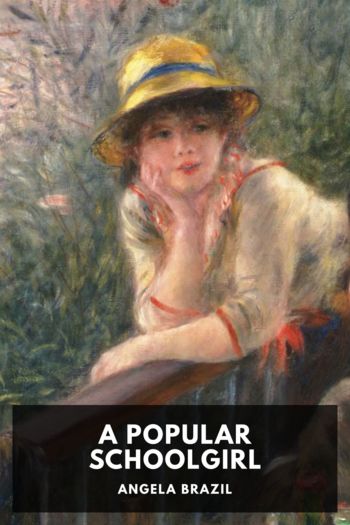Just Jackie by Edward Klein (web based ebook reader txt) 📗

- Author: Edward Klein
Book online «Just Jackie by Edward Klein (web based ebook reader txt) 📗». Author Edward Klein
In years to come, it became popular to dismiss Jackie as a woman of great personal style but little real accomplishment. She was no Eleanor Roosevelt, it was said. Some people sneered at her interest in interior design, flower arrangement, and fancy sit-down dinners.
But that was not only unfair, it was untrue. Jackie wielded great power. But she wielded it indirectly, like an art director, and through men. If the primary role of a president’s spouse is to generate popular support for the man who occupies the Oval Office, then Jackie had to be ranked as one of the most effective first ladies in American history.
With her art director’s skills, she became John Kennedy’s most potent political ally. She transformed a White House that brimmed with rampant sexual infidelities and secret assassination plots against foreign leaders into a storybook place called Camelot. She established for all time the ideal of a golden age in American politics, making people yearn for the kind of heroic leaders who were probably no longer possible. And, in the words of the poet Archibald MacLeish, she “made the darkest days the American people had known in a hundred years the deepest revelation of their inward strength.”
All this was done on such a grand scale that it was easy to overlook Jackie’s other great achievement, which came after she left the White House. In her private years, Jackie suffered an ordeal by the media such as no other woman in this century, with the possible exception of Britain’s Princess Diana, has had to undergo. But even as the public’s image of Jackie was dulled by gossipy sludge, the private flesh-and-blood Jackie developed into an ever more appealing, self-confident person.
Over the next thirty years, Jackie struggled to recapture her old life, with all the power and the glory, only to discover that the key to her happiness lay where she least expected to find it: in the simple pleasures of family, friendship, work, and nature.
“It’s queer how her public persona and her real self are so unlike,” one of her oldest friends, Charles Whitehouse, told the author toward the end of Jackie’s life. “I’ve given a lot of thought to this, and I think it is because she didn’t become connected in the public mind with any virtuous cause. She is not perceived like Lady Bird Johnson, planting and making things beautiful, or like Barbara Bush with reading. And, you know, being involved with a national problem might have eased Jackie’s situation.
“So why didn’t she do it?” Whitehouse continued. “It may have been connected in some way with her being fiercely independent, and not willing to be involved superficially in something just for the sake of the press. Jackie is clearly not gripped by children with rickets. What she is, is a fascinating, somewhat perplexing human being—lively, sporty, affectionate, youthful. Not at all like the acquisitive monster that was portrayed in the press.”
Erik Erikson was fascinated to listen to Jackie talk about herself and her children. Rarely had he encountered a woman who seemed so soaked in guilt.
“There are children who mourn invisibly,” Erikson told her, speaking about her feelings as much as those of her children. “These children may show little emotion, but they are often concerned with the idea that some aggressive or sexual act or wish of their own might have been the cause of the death.”
Jackie had no doubt harbored such aggressive wishes herself, especially when Jack Kennedy wounded her with his public displays of philandering and his callous disregard for her feelings. Her best friend, Bunny Mellon, called Jackie “a witch with supernatural powers,” and there were times when Jackie must have wished she was a sorceress so she could punish her rogue of a husband for all the pain he had inflicted upon her.
“Jack would walk into a room and spot a young, attractive girl, and make a beeline for her,” Jackie confided to a friend.
But then, in the last few months of their marriage, she and Jack had reached a new understanding, which was why she had agreed to go with him to Texas. And there in the blinding sunlight of Dallas, the third bullet from Lee Harvey Oswald’s rifle had torn away the back of Jack’s head, leaving Jackie with chunks of his brain quivering in her hands.
She would surely have given anything to obliterate the memory of her shameful wishes. But of course she was powerless to change the past. All she could do was deal with the present, and especially with the assassination’s impact on her children.
Jackie was even more concerned about John than she was about Caroline. She worried that John might somehow be damaged in his masculine development by the absence of a father figure. Her son had always been a handful, but he was growing more difficult to control. He was wild and impulsive, and unwilling to listen to anybody. Managing him was becoming a chore.
At age three, John was in the midst of Erikson’s stage three—the conflict between “initiative” and “guilt.” John was trying to figure out which of his independent moves were socially acceptable, and which were not. It was the duty of his mother to help him internalize socially correct behavior through loving discipline. At the same time, according to Erikson’s theory, she was to encourage free expression, and not raise a little automaton.
Erikson talked about the shooting in Dallas. A child’s early concept of his body was often related to mechanical objects, and a great deal of childhood was devoted to working out the desires to retain and eliminate. So it might be important to learn how little John viewed the gun, the bullet, and the hole in his





Comments (0)